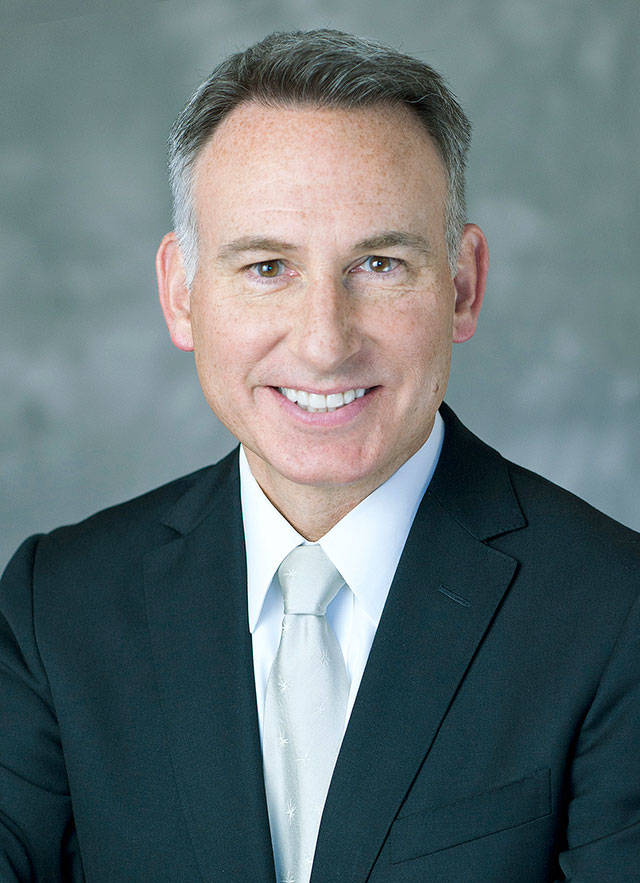King County does not collect vehicle license fees or motor vehicle excises taxes, which would be repealed under Initiative 976.
However, the state of Washington, Sound Transit and 13 King County cities including Seattle use these sources to fund mobility projects, impacting Metro operations. The city of Kent does not collect vehicle tab fees.
The Washington Office of Financial Management estimates that the state would lose approximately $1.9 billion in revenues over the next six years (2020-2025) after voters approved I-976 on Nov. 5. This includes $1.5 billion from the Multimodal Account, nearly half of which is programmed for transit across the state.
If the state Legislature decided to make across-the-board reductions in the Multimodal Account due to I-976 passage, it could result in over $100 million in cuts to Metro services between 2020 and 2025, according to a news release from King County Executive Dow Constantine. These cuts could include:
• $22.8 million in cuts to the Regional Mobility Grant Program awards for nine Metro projects, including RapidRide expansion, speed and reliability projects, access to transit, transit integration, and reduction in service on the Route 101 in Renton.
• Burien, Kent, Tukwila, and Seattle would see cuts of $29.2 million in grants for RapidRide investments, access, to transit, and speed and reliability improvements.
• $12.2 million in cuts to the Access paratransit program.
Other cuts to programs that provide bus passes to high school students, and incentives to small businesses and non-profits to provide ORCA Passes to employees would also be included.
The City of Seattle Transportation Benefit District approved by voters in 2014 implemented a 0.1 percent sales tax increase and an $60 annual vehicle license fee, generating more than $45 million annually for transit service expansion and low-income transportation equity.
I-976 would cut TBD funding by approximately $36 million, resulting in the loss of 175,000 Metro bus service hours on 74 routes in Seattle, Burien, Shoreline, Skyway, Tukwila, and
White Center. The cuts would go into effect at the bi-annual Metro service change in March.
Potential lawsuit
Constantine has asked the King County Prosecuting Attorney’s Office to prepare a lawsuit to challenge the constitutionality of I-976.
“The passage of I-976 underscores the ongoing need for comprehensive state tax reform, but for in the short term we must clean up another mess that Tim Eyman has created for our state, our region, and our economy,” Constantine said in the news release. “There will be many discussions in the weeks and months ahead to determine how to overcome the loss of safety and mobility caused by this irresponsible initiative, but the impact of I-976 to transportation is – in a word – devastating.
“We and the city of Seattle share a set a principles with which we will approach mobility reductions. These principles include: minimizing impacts to vulnerable populations, especially those with low-incomes and people of color; maintaining the 10- and 15-minute service frequency whenever possible; and minimizing overcrowding.
“There are also on-going conversations about the possible use of one-time funding as a bridge until the Legislature acts or a replacement revenue package is presented to voters. To be clear, using capital funds for operations – funds that should go to buying buses and building bases – is not good policy. If we spend it on operations, it is gone for good.
“Our state’s tax system is inefficient, unfair, volatile, inadequate, and bad for business. Local governments have few tools at their disposal to provide all of the infrastructure and services on which successful communities and a thriving economy depend. Today, our economy is generating unprecedented prosperity, while at the same time governments are forced to cobble together a transit and road systems from antiquated, inadequate and unpopular funding sources. We can and must do better.
“We in King County – where Sound Transit 3 was overwhelmingly approved and I-976 was overwhelmingly defeated – we are going to keep pushing ahead, building a transportation system and economy that gives every person access to a better future.”


